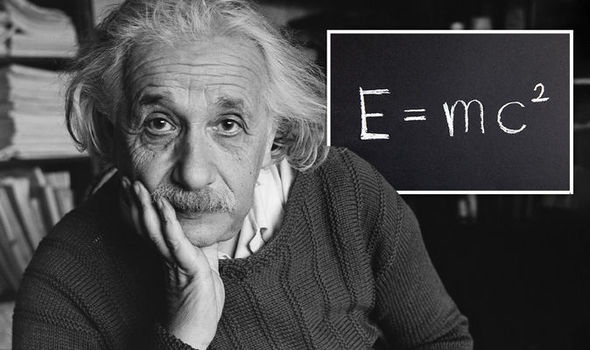
36. GOD is a product of human weaknesses
Contrary to the common belief that it was Albert Einstein who was involved with producing the world's first atomic bomb, physicist J. Robert Oppenheimer and Army Lt. Gen. Leslie Groves actually did the dirty job.
However, Einstein’s famous equation E=mc2 which explains the energy released in an atomic bomb was the basic source of idea.
Albert Einstein, fled Germany for the US immediately after Hitler came to power in 1933.
And it was in 1938, when some chemists, working in a Berlin laboratory, split the uranium atom and found the energy released was enough to power a bomb.
When Albert Einstein, from his sources received this news, he wrote to the then U.S. President Franklin Roosevelt and warned him that the Nazis were working on an atomic bomb.
The US administration took this message very seriously and in December 1941, launched the now famous Manhattan Project. It was a scientific and military undertaking which took the challenge to develop the bomb.
Scientists working on the project wanted to consult and associate Einstein but the U.S. Army Intelligence office not only denied Einstein the security clearance needed but also the scientists were forbidden from consulting with Einstein.
The US government always considered him a potential security risk.
It was on August 9, 1945, when the United States dropped an atomic bomb on the city of Nagasaki, Japan, three days after bombing Hiroshima. An estimated 200,000 people had died in the two cities.
Einstein was blamed.
He repeatedly reminded the world that he didn’t consider himself the father of the release of atomic energy, a title used those days for him, but he agreed that his part in it was quite indirect.
He died on April 18, 1955, almost ten years after Hiroshima and all those years were traumatic for him.
A year before his death he wrote a one-and-a-half page note to German philosopher Eric Gutkind which is seen as a key statement in the debate between science and religion.
In the private letter, the so-called ‘God letter’ written in his native German he wrote about his religious and philosophical views and takes issue with the belief in God: -
“The word GOD is for me nothing more than the expression and product of human weaknesses, the Bible a collection of venerable, but still rather primitive legends which are nevertheless pretty childish. No interpretation, no matter how subtle, can (for me) change anything about this.”
On his own Jewish identity, he wrote that “the Jewish people to whom I gladly belong, and in whose mentality, I feel profoundly anchored, still for me does not have any different kind of dignity from all other peoples, it is like all other religions, an incarnation of primitive superstition.”
And in another letter to a New York businessman, Hyman Zinn while praising for his work in helping Jews flee persecution in Adolf Hitler's Germany, wrote: “The power of resistance which has enabled the Jewish people to survive for thousands of years has been based to a large extent on traditions of mutual helpfulness. In these years of affliction our readiness to help one another is being put to an especially severe test. May we stand this test as well as did our fathers before us.”
In a note he gave advice on happy living. Just a single sentence, which reads: “A calm and humble life will bring more happiness than the pursuit of success and the constant restlessness that comes with it.”
Although he regretted even writing to the President Roosevelt, but just imagine if he had not warned the US President suggesting that the United States research atomic weapons before the Germans harnessed?
I wonder why Einstein wanted that the Germans should not succeed in developing an atomic bomb, but the US should?